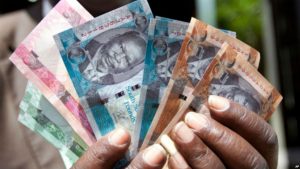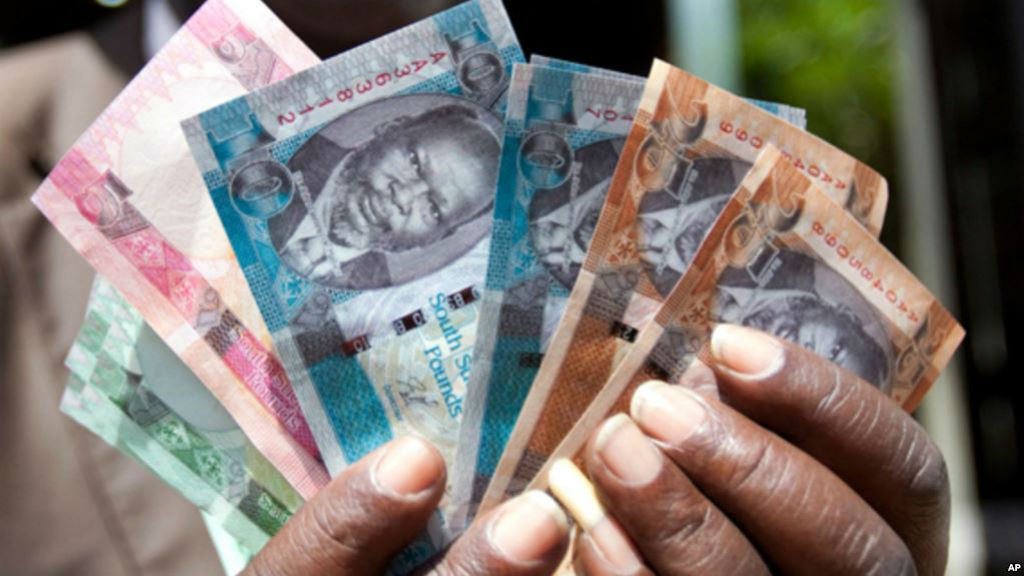
By Duop Chak Wuol
March 28, 2018 (SSNA) — In most organized societies, keeping someone in detainment who did not commit any crime is a criminal act punishable by law. However, in its 61st extra-ordinary session held on March 26, 2018 in Ethiopian capital Addis Ababa, the Intergovernmental Authority on Development (IGAD) released a communiqué stating that it decided to lift the house arrest it imposed on the leader of the Sudan People’s Liberation Movement/Army-In Opposition (SPLM/A-IO), Dr. Riek Machar. In addition, IGAD demanded that the rebel leader must first denounce violence before it can decide where he should be relocated. The East African regional bloc also asserted that Machar must only be transferred to a country without borders with South Sudan and that a group of designated IGAD ministers will propose and decide where the armed opposition leader will be moved to.
If such a resolution sounds like a conspiracy to you, then you are probably correct, because it fits within the meaning of a carefully-orchestrated political plot. The statement was not only unreasonable — it was, in fact, a glorification of Salva Kiir’s tyranny and an insult to those who lost their lives in the civil war.
IGAD’s decision to lift Machar’s unlawful imprisonment is a welcome move. I strongly believe that placing Machar under house arrest was questionable. By signaling the release of the armed opposition leader, IGAD identified its blunder for the first time. However, I wonder why the regional bloc wants the SPLM-IO leader to be relocated to a different nation instead of allowing him to go to any place of his own choosing? There is absolutely no rational explanation as to why a group of IGAD leaders united themselves to keep an innocent man in confinement against his will when meanwhile, Kiir committed massacres and enjoyed freedom in Juba. IGAD leaders should explain to the people of South Sudan why they are willing to punish Machar while simultaneously failing to bring the war to an end. The bloc should also explain why it is interested in preventing Dr. Machar from participating in South Sudan’s politics. IGAD’s main goal is to work for a peaceful solution to the ongoing civil war, instead of choosing a seemingly one-sided approach. If the bloc does not change its current stance on South Sudan’s situation, then I suggest that the African Union (AU) and the international community take over the peace process. The South Sudanese are also interested in knowing whether IGAD is merely an entity for East African leaders to protect themselves or is instead interested in solving regional issues.
It is worth noting that South Sudan’s conflict has become a lucrative business for some countries. What these nations need to know is that tens of thousands of people have died because of Kiir’s political madness. Protecting Kiir by passing pro-Juba resolutions will not only escalate the war but will increase South Sudanese anger towards Kiir. The Republic of South Sudan should not be a testing ground where civil liberties and human rights are traded for money, regional interests, or hidden intentions. If IGAD is working for the goodness of the people of South Sudan, then it must not justify Salva Kiir’s ruthlessness by coming up with motions that are contrary to its own vision. The March 26th decision by IGAD to transfer the rebel leader to a country outside of the East African region only strengthens the suspicion already present in the minds of millions of South Sudanese that the regional bloc is marred by bribery, illicit deals, greed, and conspiracy.
Is the confinement of Riek Machar an act of complicity? What crime did Riek Machar commit against Uganda, Kenya, Sudan, Djibouti, Ethiopia, Somalia, or Eritrea? Is IGAD conducting itself impartially in relation to South Sudan’s peace process? Why are the leaders of the East African regional bloc seemingly working in the best interest of Juba’s atrocious regime? What exactly is IGAD trying to tell the people of South Sudan and the international community? Is IGAD trying to legitimize the regime of a murderous tyrant?
Dr. Machar did not commit a single crime against any IGAD member state. If the bloc’s resolution is not an act of collusion, then I am not sure what it really means. I agree with the idea that leaders should denounce and condemn violence. However, the notion that Machar is the only leader who should denounce violence is rather fallacious. The conditions set by IGAD are absurd. Transferring Machar from South Africa to another country should not be called a release — it is, in fact, an extension of his current confinement. The reality is that the bloc is not ready to release the rebel leader. If IGAD is impartial in its quest for peace, then it must ask all South Sudanese leaders, including Kiir, to denounce violence.
IGAD has been somewhat instrumental before, but the people of South Sudan know that most of its decisions have been anti-SPLM/A-IO. I am not quite sure whether this apparent help-Kiir-at-all-costs policy is influenced by Kiir’s ally, Yoweri Museveni. There is nothing wrong with supporting your friend or counterpart, but giving your full support to a leader who slaughtered tens of thousands of his fellow citizens without any good reason is rather reprehensible. The ethnic carnage Kiir carried out in December 2013 in Juba was so brutal that only a leader who does not care about the suffering of South Sudanese would support it. The leaders of IGAD should work towards finding a lasting solution to the conflict and not allow themselves to be used by Kiir. Salva Kiir is a cunning person. He used the 2013 fake coup as evidence to purge Machar and other South Sudanese leaders who he saw as a threat to his leadership. There was no such a thing as a coup in this instance, contrary to what Kiir would like everyone to believe. The real coup was the bogus one he orchestrated in Kampala with the help of Museveni.
It is good to remind people that in 2016, when the SPLM-IO leader was forced to go to Juba to implement the August 2015 imposed peace agreement, he was nearly killed. What I find ironic about this specific narrative is that when Machar survived the July 2016 assassination attempt and fled Juba, there was not a single IGAD leader who came out and criticized Salva Kiir. One would argue that the only thing the East African regional bloc wants is to keep Kiir in power, regardless of what the people of South Sudan want.
Peace is better than war. I am certain that the South Sudanese want peace to return to their country. IGAD must know that peace will not be achieved by imposing anti-peace resolutions on the SPLM/A-IO leader. Kiir is the one who started the current civil war and Machar is the victim. Thus, for the bloc to insist that Dr. Machar should continue living in exile instead of completely lifting his house arrest to live a free life is not a plausible decision the armed opposition should endorse. The bloc must choose between keeping its tainted image, or else risk being declared by the South Sudanese as “not a credible, neutral, or impartial entity.” Complicit or not, the people of South Sudan are fully aware of IGAD’s pro-Juba stance.
The author is an analyst and can be reached at [email protected].

